E-E-A-T is a mix of factors that help Google determine if the content is relevant and helpful for users in order to prioritize it in their search results.
In recent articles, we covered how to leverage Experience, Authority, and Expertise to boost a company’s international strategy.
However, there is still one very important area to cover within the E-E-A-T family: Trust. Although it is the last one we approached, it is certainly not the least important. Quite the contrary.
As Google’s search quality rater guidelines indicate, Trust, which considers the extent to which the page is accurate, honest, safe, and reliable, is the most important member at the center of E-E-A-T.
No matter how experienced, expert, or authoritative a website is, if it is untrustworthy, it will have low E-E-A-T.
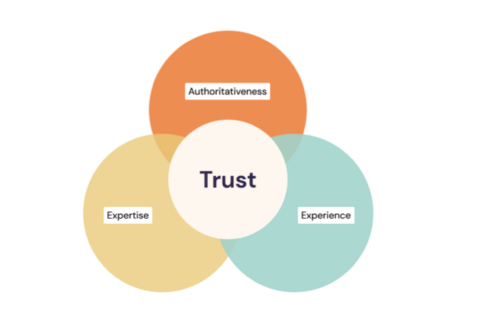 Image from Google’s search quality rater guidelines, May 2024
Image from Google’s search quality rater guidelines, May 2024Showing trust is incredibly relevant for “Your Money or Your Life” (YMYL) topics. These are the ones that can have a significant impact on an individual’s or society’s health, finances, safety, security, knowledge, or well-being.
But what happens when we want to create international strategies? How can we leverage E-E-A-T to boost our international expansion and especially show that we are honest and reliable to users from all around the world?
Let’s discover some detailed actions that can be implemented to achieve these international results.
How To Show Trust To Users From All Around The World
Accessibility And Usability
One of the first steps in trying to sell a product or service internationally is to ensure that users in each region can properly access the site.
This means the website must be fast, secure, display correctly, and be usable for them. It should allow users to easily search for relevant information and purchase the product or service.
International Brand Name
Beyond making the site accessible, it is also highly recommended that consumers can find the brand easily.
Whenever possible, it is advisable to have an “international” brand or domain name that is easy to remember, spell, and look for online for users from any country worldwide, even though they don’t speak the local language.
Localization: The Key Element To Show Trust
Localization is fundamental to demonstrating to users from different regions around the world that your site is reliable and trustworthy. Each country, language, or region has its singularities.
We cannot try to sell our product with the same message and strategies to users from all target markets, as we won’t transmit enough confidence for them to see that we are the most expert, experienced, and authoritative website in our sector.
For this, when we want to sell internationally, it is very important to:
- Analyze the languages spoken in each region to evaluate how and if it is a priority to include them on the website.
- Transcribe, not just translate. The knowledge users have about our products or services may differ in each region. Therefore, it is key to adapt the message to each market.
- Make sure that the language is displayed by default when users search for it from their location. That’s why it is very important a proper translation, and also an hreflang configuration on the site.
- Understand the local buying habits of the product or service in the region and the cultural customs with its use.
- Study how users search for products or services to define the best type of content to create: text, videos (e.g., tutorials or how-to’s), images (e.g., demonstrating and teaching the product’s use).
For example, when we look for the keywords “Tió de Nadal” or “Caga Tió” – which have the same meaning – a local Christmas tradition celebrated in Catalonia, Spain, the results and the type of message we have to create are for local users.
Surely, this type of search will have an informational purpose, but it can also be transactional since the tradition is already well-known in the country.
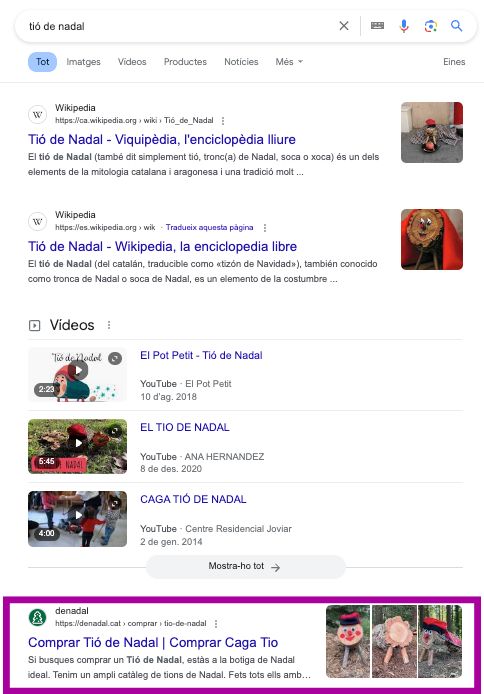 Screenshot from search for [tio de nadal], Google, May 2024
Screenshot from search for [tio de nadal], Google, May 2024On the other hand, if we search for the same in the United States, the keyword will have a more informational aim since users are not so used to the tradition, and with this type of search, what they want to discover is more information about this custom, before seeing transactional results.
So, the type of content will be more descriptive.
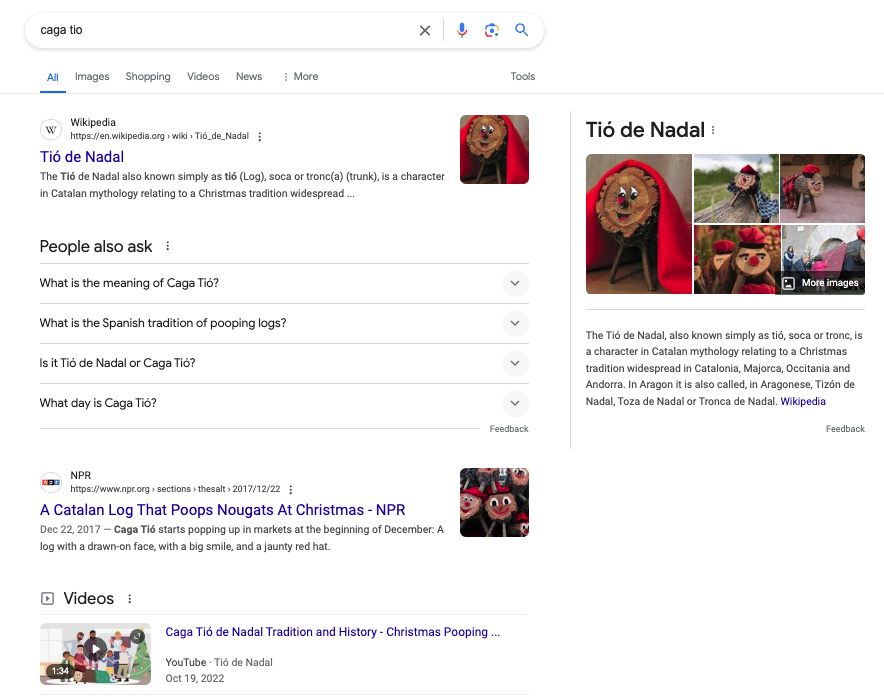 Screenshot from search for [caga tio], Google, May 2024
Screenshot from search for [caga tio], Google, May 2024For all these reasons, it is essential to geolocate content in each region in order to transmit sufficient confidence to potential customers.
Transmit That You Are The Safest Site
One of the main factors that can make selling on an international scale difficult is failing to demonstrate that the website is sufficiently secure.
We must remember that when a user buys one of our products, they will not be able to make physical claims regarding legal aspects, reimbursements, etc. Therefore, it is essential to accurately and properly communicate all aspects related to payment methods and shipping so users know that we are a reliable, safe, and trustworthy site.
To achieve this, it is highly recommended to:
- Include the currency of each country on the product page.
- Incorporate the most common payment methods used in each country. Whether it is by credit card, Bizum, or PayPal, we should include not only the payment methods we are accustomed to but also those familiar to users in the target region.
- Detail the shipping system. From delivery time to return conditions, shipping company, and tracking code, we must provide all necessary information to instill confidence in a person who may live thousands of miles from where the products are located.
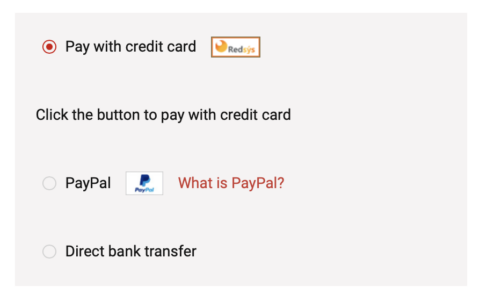 Screenshot from author, May 2024
Screenshot from author, May 2024Tell Who You Are With A Detailed “About Us” Page
For companies with a local focus, explaining who they are is very important. When selling on an international scale, it becomes essential.
We have to consider that the user who wants to buy our product or service may not have any prior knowledge of the business, the product we sell, or who we are.
That’s why we need to create a highly detailed “About Us” page, including information such as:
- Company location and origins, with images or videos.
- The manufacturing process and product creation details.
- Detailed information about the team members, including links to other platforms, if possible, such as social networks.
- Demonstrate knowledge of the subject matter through awards, certifications, quality seals, etc.
- Include ratings and opinions from third parties.
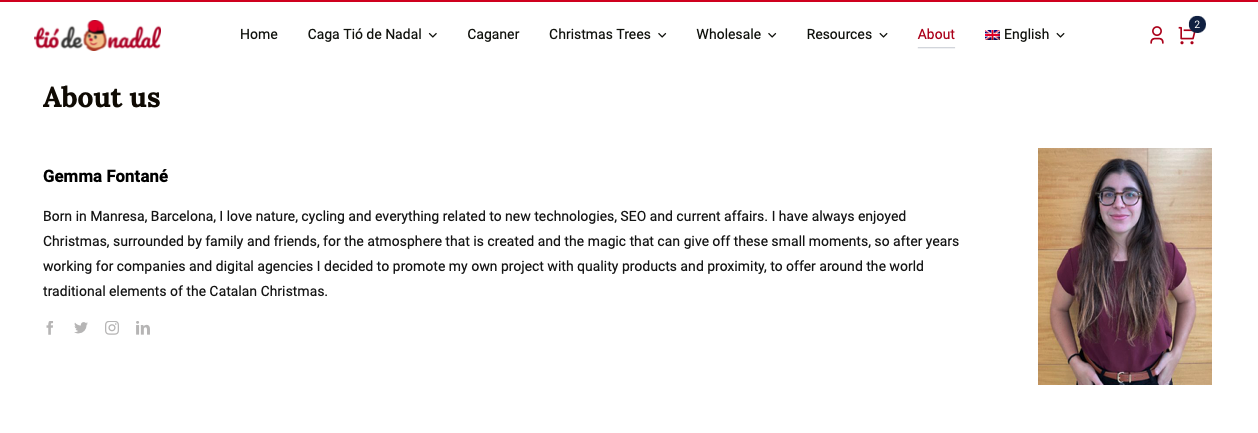 Screenshot from author, May 2024
Screenshot from author, May 2024Reliable Customer Service
Finally, to encourage users to purchase a product or service on an international website, it is essential to demonstrate that there is reliable customer service.
We need to communicate that there are real people behind the website.
To show reliable customer service on a site, some actions we can take include:
- Include a FAQ page with a focus on international questions, such as those regarding international shipping.
- Provide direct and human contact options. Whether via chat, WhatsApp, phone, or email, offering users the opportunity to get their questions or doubts answered quickly by a human representative will help build confidence.
- Include your location. Link it with Google My Business, complete with a detailed profile including images and information.
- Display reviews of your customer service on your site so users can see the experiences of others.
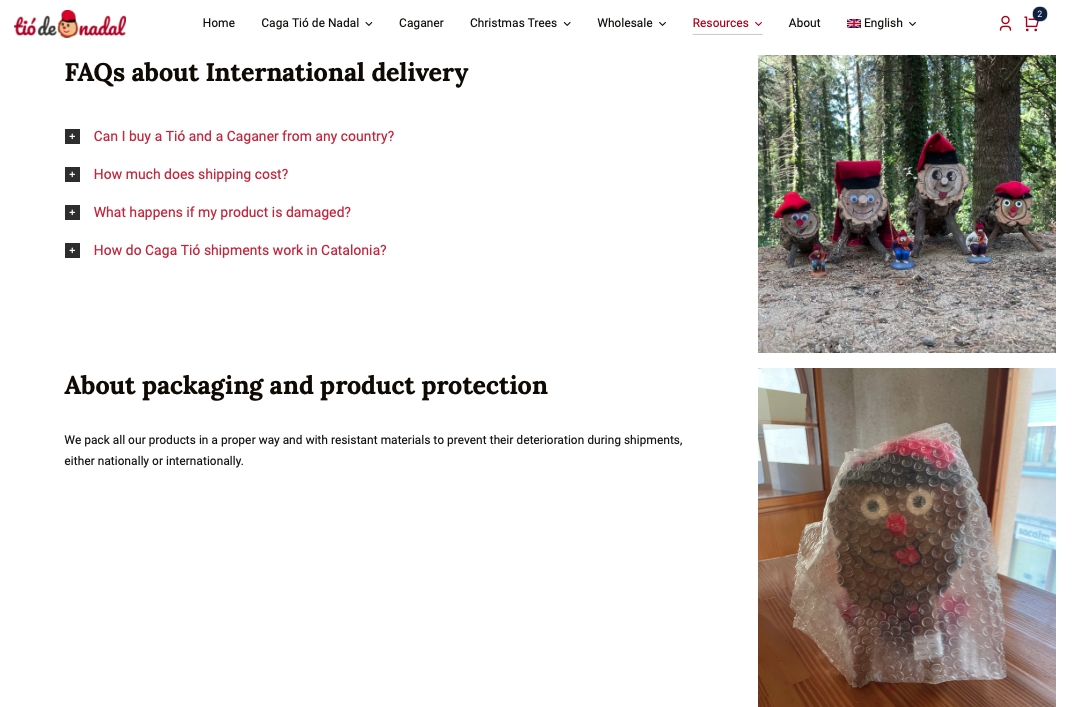 Screenshot from author, May 2024
Screenshot from author, May 2024Link To Other Platforms And Sites
Finally, another action we can implement to build trust with users from around the world is to show them that we have profiles on other social networks and demonstrate how others talk about us.
To do this, we can:
- Create and link to other social network profiles.
- Get mentions from local influencers or sector leaders.
- Get featured on local relevant websites.
- Get listed on relevant directories in our sector.
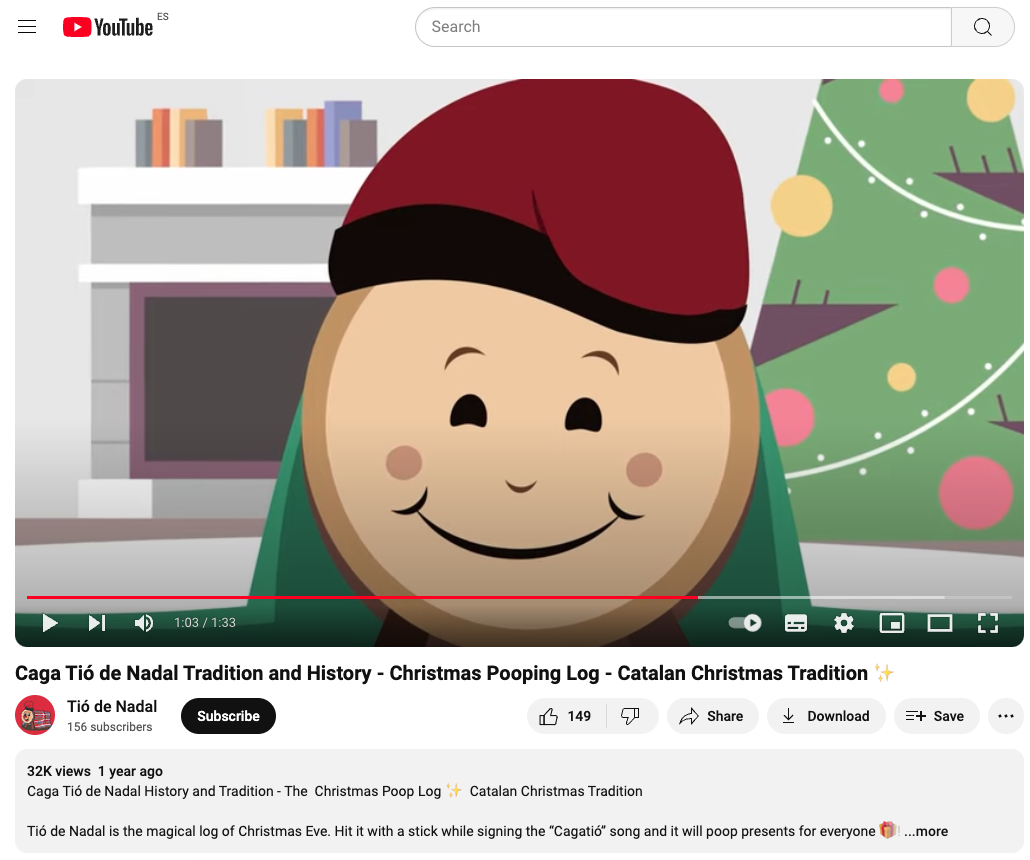 Screenshot from YouTube, May 2024
Screenshot from YouTube, May 2024Leverage Trust To Boost International Strategies
Trust is very important for YMYL topics.
However, we shouldn’t forget how important it is in other sectors or sites, such as for when we want to sell internationally.
Showing that a site is accurate, honest, safe, and reliable is also a key element in building trust with users worldwide – along with showcasing that we have experience, authority, and expertise related to our sector, products, and service.
More resources:
Featured Image: BRO.vector/Shutterstock
